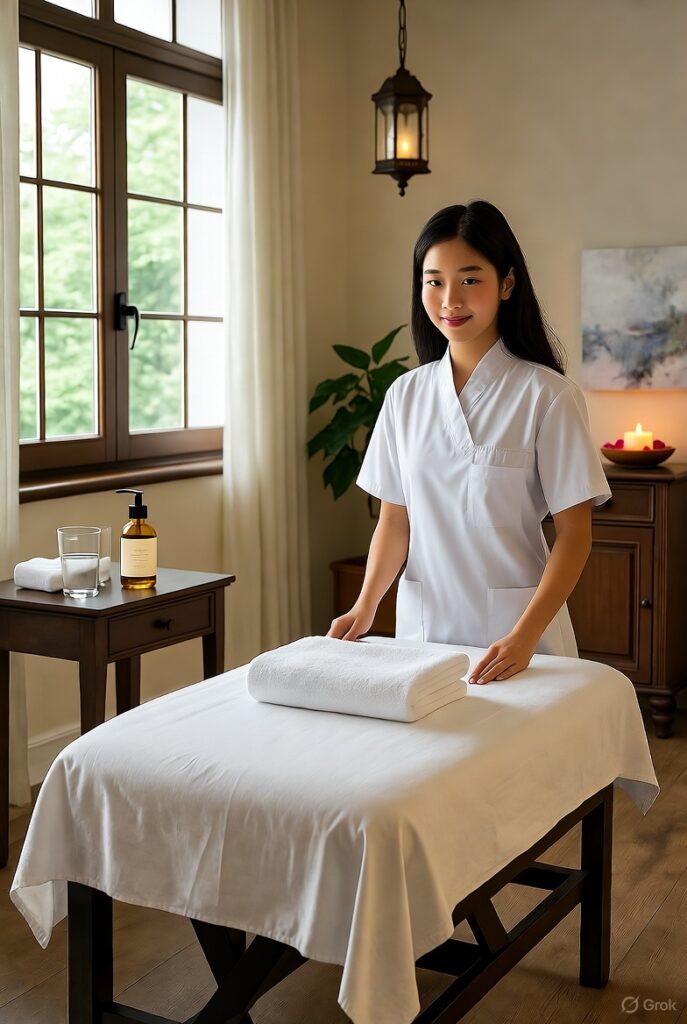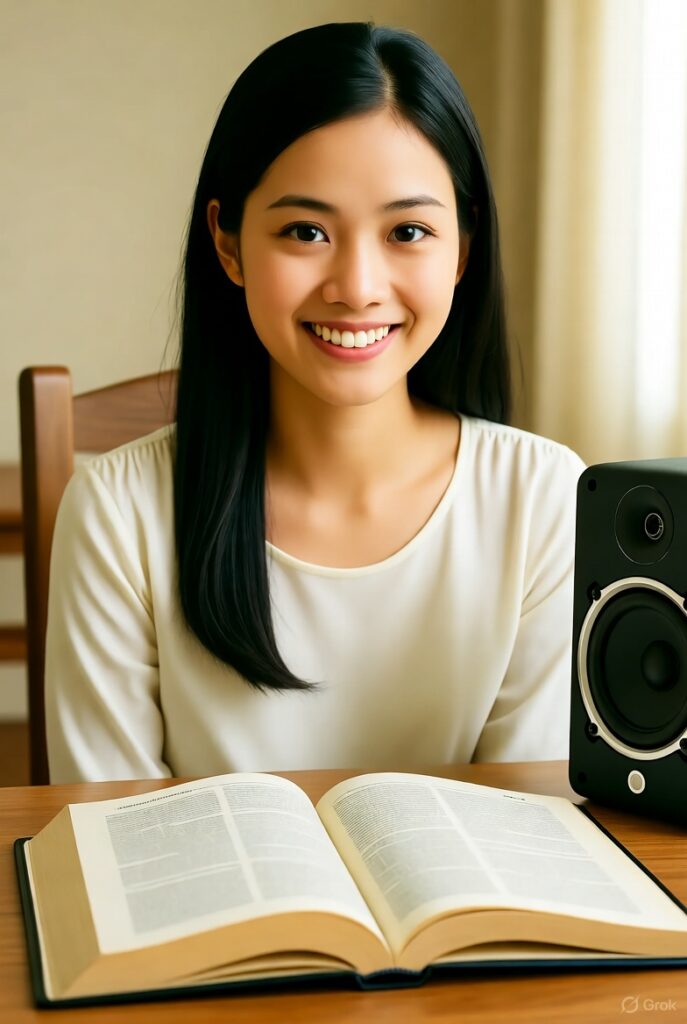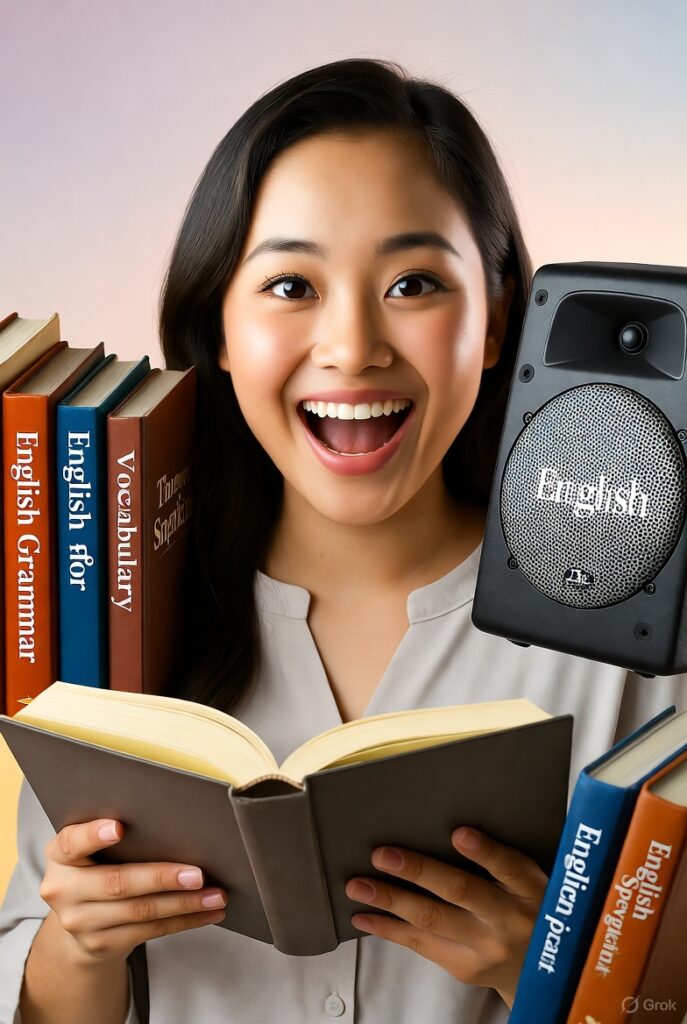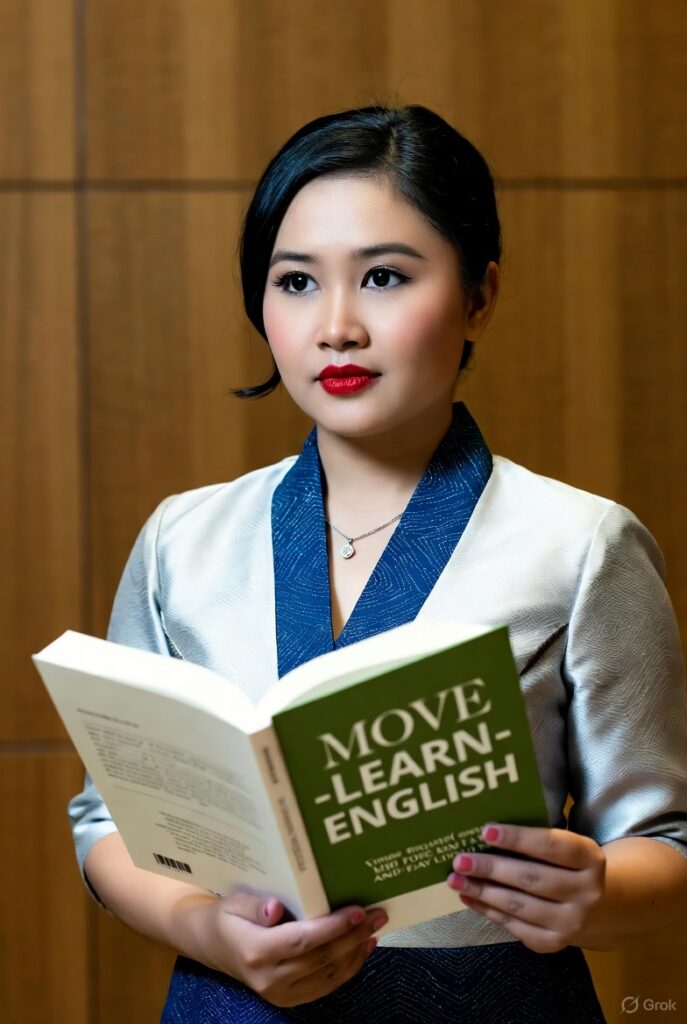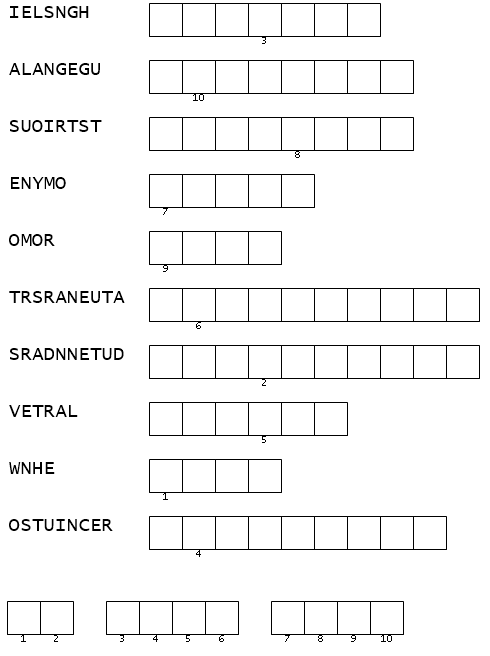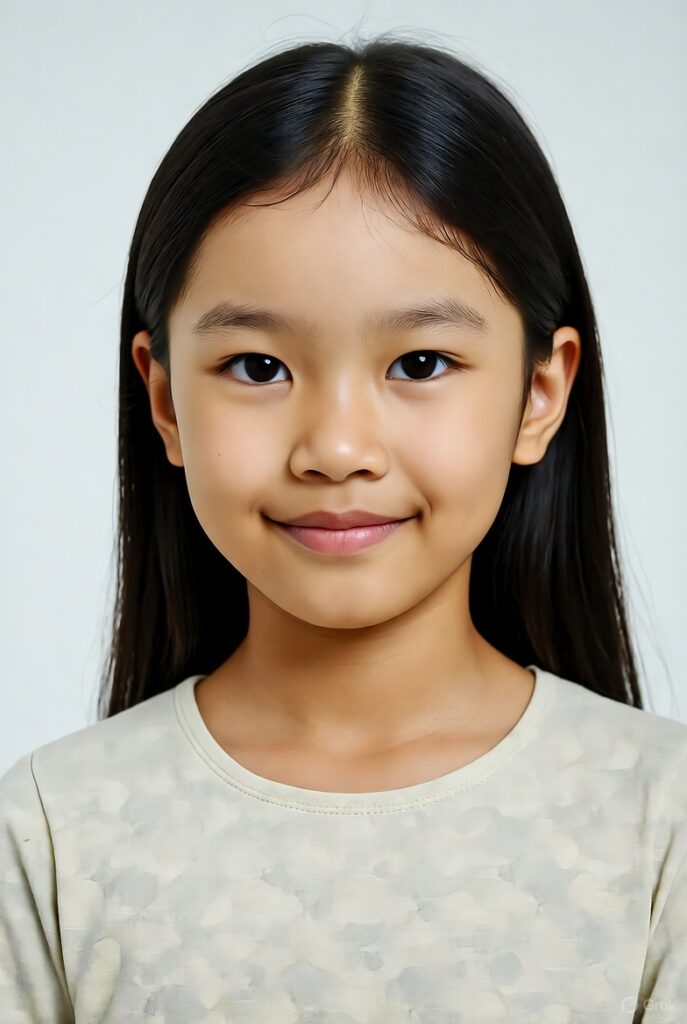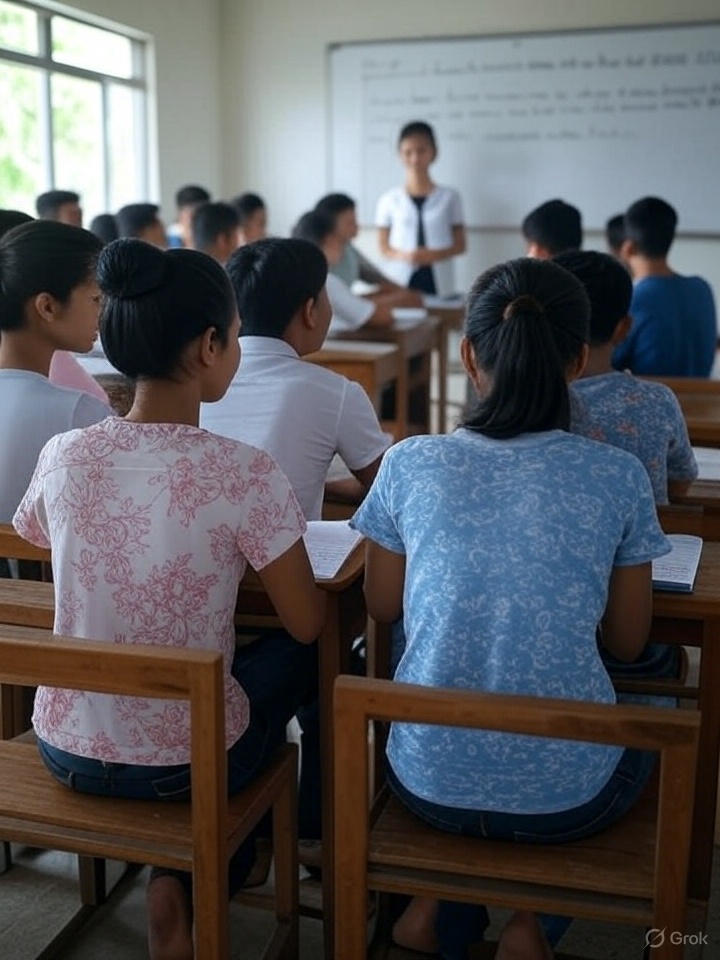- serving guests, a mission

Basics:
| Personal Pronoun | am / is / are | |
|---|---|---|
| I | am | 8 years old |
| You | are | 8 years old |
| He | is | 8 years old |
| She | is | 8 years old |
| It | is | 8 years old |
| We | are | 8 years old |
| You (plural) | are | 8 years old |
| They | are | 8 years old |
| Personal Pronoun | am not / is not / are not | |
|---|---|---|
| I | am not | 8 years old |
| You | are not | 8 years old |
| He | is not | 8 years old |
| She | is not | 8 years old |
| It | is not | 8 years old |
| We | are not | 8 years old |
| You (plural) | are not | 8 years old |
| They | are not | 8 years old |
Question:
| Question Word | Personal Pronoun | |
|---|---|---|
| Am | I | 8 years old? |
| Are | you | 8 years old? |
| Is | he | 8 years old? |
| Is | she | 8 years old? |
| Is | it | 8 years old? |
| Are | we | 8 years old? |
| Are | you (plural) | 8 years old? |
| Are | they | 8 years old? |
Statement:
| Personal Pronoun | Verb | |
|---|---|---|
| I | like | ice cream |
| You | like | ice cream |
| He | likes | ice cream |
| She | likes | ice cream |
| It | likes | ice cream |
| We | like | ice cream |
| You (plural) | like | ice cream |
| They | like | ice cream |
Negation:
| Personal Pronoun | Verb (negative) | |
|---|---|---|
| I | do not like | ice cream |
| You | do not like | ice cream |
| He | does not like | ice cream |
| She | does not like | ice cream |
| It | does not like | ice cream |
| We | do not like | ice cream |
| You (plural) | do not like | ice cream |
| They | do not like | ice cream |
Question:
| Do / Does | Personal Pronoun | Verb | Sugar? |
|---|---|---|---|
| Do | I | like | sugar? |
| Do | you | like | sugar? |
| Does | he | like | sugar? |
| Does | she | like | sugar? |
| Does | it | like | sugar? |
| Do | we | like | sugar? |
| Do | you (plural) | like | sugar? |
| Do | they | like | sugar? |
###################
Ari works in a big hotel. It is a 5-star hotel. He works in the restaurant.
Every morning Ari gets up early. He takes a shower, puts on his clean uniform, and eats breakfast. Then he goes to work and smiles.
He says hello to his friends. He looks at the tables. The tables must be clean. The chairs must be in the right place. The glasses must be nice. The flowers on the tables must look fresh.
The guests come. Ari says, “Good morning!” He helps them find a table. He brings food and drinks. He always says, “Please” and “Thank you.”
Sometimes it is very busy. Many people want food. Sometimes a guest is not happy.
Ari stays calm and friendly. He speaks softly and helps. The guests like Ari. They say, “Thank you!” and smile.
Ari likes his job. He meets many people every day from many countries. Last month he was “Staff of the Month.”
He was very happy and proud. His boss said, “Good job, Ari!”
Ari works hard and always does his best. He wants to learn more and be even better.
________________________
Vocabulary:
to get up early – to leave your bed in the morning when it is still early
to take a shower – to wash your body with water
to put on a uniform – to dress in special clothes for work or school
clean – not dirty
to smile – to make a happy face with your mouth
in the right place – in the correct spot, where it should be
to look fresh – to look new, nice, and not old or tired
to be busy – to have a lot of work, not have free time
to stay calm – to be quiet and not get angry or afraid
to be friendly – to be kind and nice to other people
to speak softly – to talk in a quiet voice
a country – a place like Thailand, France, or Japan
staff of the month – the best worker in one month
to be proud – to feel happy about your good work
to be better – to do something more well than before
####################
Ari’s best friend, Maurice
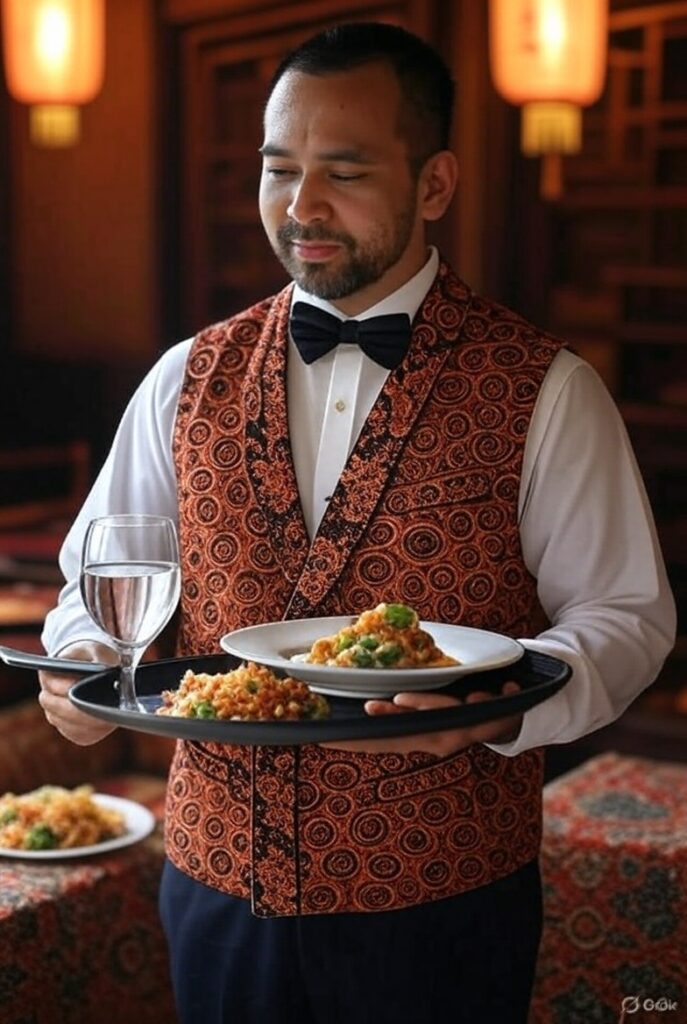
Match the words with their meanings:
Words:
- to get up early
- to take a shower
- to put on a uniform
- clean
- to smile
- in the right place
- to look fresh
- to be busy
- to stay calm
- to be friendly
- to speak softly
- a country
- staff of the month
- to be proud
- to be better
Definitions:
A. to talk in a quiet voice
B. to leave your bed in the morning when it is still early
C. to feel happy about your good work
D. to have a lot of work, not have free time
E. to wash your body with water
F. the best worker in one month
G. to be quiet and not get angry or afraid
H. to look new, nice, and not old or tired
I. not dirty
J. a place like Thailand or Japan
K. in the correct spot, where it should be
L. to make a happy face with your mouth
M. to be kind and nice to other people
N. to dress in special clothes for work or school
O. to do something more well than before
_________________________
Answers:
1–B, 2–E, 3–N, 4–I, 5–L, 6–K,
7–H, 8–D, 9–G, 10–M, 11–A,
12–J, 13–F, 14–C, 15–O
________________________
Correct answers:
to get up early – to leave your bed in the morning when it is still early
to take a shower – to wash your body with water
to put on a uniform – to dress in special clothes for work or school
clean – not dirty
to smile – to make a happy face with your mouth
in the right place – in the correct spot, where it should be
to look fresh – to look new, nice, and not old or tired
to be busy – to have a lot of work, not have free time
to stay calm – to be quiet and not get angry or afraid
to be friendly – to be kind and nice to other people
to speak softly – to talk in a quiet voice
a country – a place like Thailand or Japan
staff of the month – the best worker in one month
to be proud – to feel happy about your good work
to be better – to do something more well than before
###################
Gap-fill sentences, fill in, words below:
guests, proud, staff, restaurant,
tables, busy, best,
smile, calm,
people
———————————-
- Every morning Ari _______ on his clean uniform.
- Ari works in a big 5-star _______.
- He looks at the _______. The tables must be clean.
- Ari says, “Good morning!” and helps the _______ find a table.
- Sometimes it is very _______ in the restaurant.
- Ari stays calm and _______ when a guest is not happy.
- The guests like Ari. They say, “Thank you!” and _______.
- Last month Ari was “_______ of the Month.”
- Ari likes his job. He meets many _______ every day.
- Ari works hard and always does his _______.
———————————
Correct version:
- Every morning Ari puts on his clean uniform.
- Ari works in a big 5-star hotel.
- He looks at the tables. The tables must be clean.
- Ari says, “Good morning!” and helps the guests find a table.
- Sometimes it is very busy in the restaurant.
- Ari stays calm when a guest is not happy.
- The guests like Ari. They say, “Thank you!” and smile.
- Last month Ari was “Staff of the Month.”
- Ari likes his job. He meets many people every day.
- Ari works hard and always does his best.
###################
True or false, if false provide the correct answer:
- Ari works in a restaurant.
- Ari works in a 3-star hotel.
- The tables are clean.
- Ari says “Good night” to the guests.
- Ari stays calm when a guest is unhappy.
- Ari brings food and drinks to the guests.
- Ari meets many people every day.
- Last month Ari was staff of the week.
- Ari is unfriendly to the guests.
- The glasses are nice.
- Ari works hard and does his best.
- Ari dislikes his job.
__________________________
True: 1,3,5,6,7,10,11
__________________________
Correct version:
- Ari works in a restaurant.
- Ari works in a 3-star hotel. True is: Ari works in a 5-star hotel.
- The tables are clean.
- Ari says “Good night” to the guests. True is: Ari says “Good morning” to the guests.
- Ari stays calm when a guest is unhappy.
- Ari brings food and drinks to the guests.
- Ari meets many people every day.
- Last month Ari was staff of the week. True is: Last month Ari was staff of the month.
- Ari is unfriendly to the guests. True is: Ari is friendly to the guests.
- The glasses are nice.
- Ari works hard and does his best.
- Ari dislikes his job. True is: Ari likes his job.
###################
Short answers, basics:
| Example Sentence | Yes | No |
|---|---|---|
| I learn the alphabet. | Yes, I do. | No, I don’t. |
| You read signs. | Yes, you do. | No, you don’t. |
| He practices speaking. | Yes, he does. | No, he doesn’t. |
| She watches cartoons. | Yes, she does. | No, she doesn’t. |
| It helps us learn English. | Yes, it does. | No, it doesn’t. |
| We use apps like Duolingo. | Yes, we do. | No, we don’t. |
| You read labels. | Yes, you do. | No, you don’t. |
| They make mistakes sometimes. | Yes, they do. | No, they don’t. |
| Question | Yes | No |
|---|---|---|
| Do I learn the alphabet? | Yes, I do. | No, I don’t. |
| Do you read signs? | Yes, you do. | No, you don’t. |
| Does he practice speaking? | Yes, he does. | No, he doesn’t. |
| Does she watch cartoons? | Yes, she does. | No, she doesn’t. |
| Does it help us learn English? | Yes, it does. | No, it doesn’t. |
| Do we use apps like Duolingo? | Yes, we do. | No, we don’t. |
| Do you read labels? | Yes, you do. | No, you don’t. |
| Do they make mistakes sometimes? | Yes, they do. | No, they don’t. |
| Question | Yes | No |
|---|---|---|
| Am I big? | Yes, I am. | No, I am not. |
| Are you big? | Yes, you are. | No, you aren’t. |
| Is he big? | Yes, he is. | No, he isn’t. |
| Is she big? | Yes, she is. | No, she isn’t. |
| Is it big? | Yes, it is. | No, it isn’t. |
| Are we big? | Yes, we are. | No, we aren’t. |
| Are you big? | Yes, you are. | No, you aren’t. |
| Are they big? | Yes, they are. | No, they aren’t. |
#####################
Short answers:
- Ari works in a restaurant.
YOU WRITE:
Yes, he does. - Ari works in a 3-star hotel.
_______________________ - The tables are clean.
_______________________ - Ari says “Good night” to the guests.
_______________________ - Ari stays calm when a guest is unhappy.
_______________________ - Ari brings food and drinks to the guests.
_______________________ - Ari meets many people every day.
_______________________ - Ari likes to be staff of the week.
_______________________ - Ari is unfriendly to the guests.
_______________________ - The glasses are nice.
_______________________ - Ari works hard and does his best.
_______________________ - Ari dislikes his job.
_______________________
————————————
Correct answers:
Ari works in a restaurant.
Yes, he does.
Ari works in a 3-star hotel.
No, he doesn’t.
The tables are clean.
Yes, they are.
Ari says “Good night” to the guests.
No, he doesn’t.
Ari stays calm when a guest is unhappy.
Yes, he does.
Ari brings food and drinks to the guests.
Yes, he does.
Ari meets many people every day.
Yes, he does.
Ari likes to be staff of the week.
Yes, he does.
Ari is unfriendly to the guests.
No, he isn’t.
The glasses are nice.
Yes, they are.
Ari works hard and does his best.
Yes, he does.
Ari dislikes [not ike] his job.
No, he doesn’t.
###################
True or false, correct answers:
- Ari works in a hotel garden.
YOU WRITE:
No, he doesn’t. He works in a hotel - Ari works in a 3-star hotel.
__________________________ - Ari wears casual clothes at work.
__________________________ - The tables are dirty.
__________________________ - Ari says “Good night” to the guests.
__________________________ - Ari is angry when guests are unhappy.
__________________________ - Ari brings only drinks to the guests.
__________________________ - Ari meets few people every day.
__________________________ - Ari likes to be staff of the week.
__________________________ - Ari is unfriendly to the guests.
__________________________ - The glasses are dirty.
__________________________ - Ari dislikes his job.
__________________________
———————————
Correct version:
Ari works in a hotel garden.
No, he doesn’t. He works in a hotel restaurant.
Ari works in a 3-star hotel.
No, he doesn’t. He works in a 5-star hotel.
Ari wears casual clothes at work.
No, he doesn’t. He wears a clean uniform.
The tables are dirty.
No, they aren’t. The tables are clean.
Ari says “Good night” to the guests.
No, he doesn’t. He says “Good morning” to the guests.
Ari is angry when guests are unhappy.
No, he isn’t. He stays calm when guests are unhappy.
Ari brings only drinks to the guests.
No, he doesn’t. He brings food and drinks to the guests.
Ari meets few people every day.
No, he doesn’t. He meets many people every day.
Ari dislikes to be staff of the week.
No, he doesn’t. He likes to be staff of the week.
Ari is unfriendly to the guests.
No, he isn’t. He is friendly to the guests.
The glasses are dirty.
No, they aren’t. The glasses are nice.
Ari dislikes his job.
No, he doesn’t. He likes his job.
###################
Answer in complete sentences:
- Does Ari work in a hotel or in a garden?
YOU WRITE:
Ari works in a hotel. - Does Ari wear a uniform or casual clothes?
________________________________ - Does Ari work in a 5-star hotel or a 3-star hotel?
________________________________ - Does Ari bring food and drinks or only drinks?
________________________________ - Does Ari meet many people or few people every day?
________________________________ - Does Ari stay calm or get angry when a guest is unhappy?
________________________________ - Does Ari say “Good morning” or “Good night” to the guests?
________________________________ - Does Ari work in the restaurant or in the kitchen?
________________________________ - Does Ari like or dislike being staff of the month?
________________________________ - Are the tables clean or dirty?________________________________
- Are the glasses nice or broken?
________________________________
———————
Correct answers:
- Ari works in a hotel.
- Ari wears a uniform.
- Ari works in a 5-star hotel.
- Ari brings food and drinks.
- Ari meets many people every day.
- Ari stays calm when a guest is unhappy.
- Ari says “Good morning” to the guests.
- Ari works in the restaurant.
- Ari likes being staff of the month.
- The tables are clean.
- The glasses are nice.
##################
Answer these questions:
- What does Ari do every morning?
YOU WRITE:
Ari puts on his clean uniform and goes to work. - Where does Ari work?
- Who does Ari help in the restaurant?
- How does Ari greet the guests?
- When does Ari start work?
- Why does Ari stay calm with unhappy guests?
- Which hotel does Ari work in?
- How many people does Ari meet every day?
- What does Ari wear at work?
- How does Ari feel when he is staff of the month?
______________________
Correct answers:
Ari feels happy and proud.
Ari puts on his clean uniform and goes to work.
Ari works in the restaurant of a 5-star hotel.
Ari helps the guests.
Ari says “Good morning.”
Ari starts work every morning.
Ari stays calm to help the guests and be friendly.
Ari works in a 5-star hotel.
Ari meets many people every day.
Ari wears a clean uniform.
#################
Interview with Ari, fill in, words below:
smile -clean – uniform – many – guests –
friendly – 5-star – proud –
at work – nice
—————————————–
1. Q: What do you do every morning?
A: I put on my clean __________ and go to work.
2. Q: Where do you work?
A: I work in the restaurant of a __________ hotel.
3. Q: Who do you help in the restaurant?
A: I help the __________.
4. Q: How do you greet the guests?
A: I say “Good morning” and __________.
5. Q: When do you start work?
A: I start work every morning.
6. Q: Why do you stay calm with unhappy guests?
A: I stay calm to help them and be __________.
7. Q: Which hotel do you work in?
A: I work in a 5-star hotel.
8. Q: How many people do you meet every day?
A: I meet _________ people every day.
9. Q: What do you wear __________?
A: I wear a clean uniform.
10. Q: How do the tables look?
A: The tables are __________.
11. Q: How do the glasses look?
A: The glasses are__________.
12. Q: How do you feel when you are staff of the month?
A: I feel happy and __________.
———————–
Correct version:
1. Q: What do you do every morning?
A: I put on my clean uniform and go to work.
2. Q: Where do you work?
A: I work in the restaurant of a 5-star hotel.
3. Q: Who do you help in the restaurant?
A: I help the guests.
4. Q: How do you greet the guests?
A: I say “Good morning” and smile.
5. Q: When do you start work?
A: I start work every morning.
6. Q: Why do you stay calm with unhappy guests?
A: I stay calm to help them and be friendly.
7. Q: Which hotel do you work in?
A: I work in a 5-star hotel.
8. Q: How many people do you meet every day?
A: I meet many people every day.
9. Q: What do you wear at work?
A: I wear a clean uniform.
10. Q: How do the tables look?
A: The tables are clean.
11. Q: How do the glasses look?
A: The glasses are nice.
12. Q: How do you feel when you are staff of the month?
A: I feel happy and proud.
#################
Now you interview Salas about Ari, and you want to know as much as possible about Ari.
Use dialogue above.
START WITH:
Q: What does he do every morning?
A: He puts in his clean uniform and gies to work.
Q: Where does……………….?
A:………………………………………
———————————-
Correct dialogue:
Interview with Salas about Ari
1. Q: What does he do every morning?
A: He puts on his clean uniform and goes to work.
2. Q: Where does he work?
A: He works in the restaurant of a 5-star hotel.
3. Q: Who does he help in the restaurant?
A: He helps the guests.
4. Q: How does he greet the guests?
A: He says “Good morning” and smiles.
5. Q: When does he start work?
A: He starts work every morning.
6. Q: Why does he stay calm with unhappy guests?
A: He stays calm to help them and be friendly.
7. Q: Which hotel does he work in?
A: He works in a 5-star hotel.
8. Q: How many people does he meet every day?
A: He meets many people every day.
9. Q: What does he wear at work?
A: He wears a clean uniform.
10. Q: How do the tables look?
A: The tables are clean.
11. Q: How do the glasses look?
A: The glasses are nice.
12. Q: How does he feel when he is staff of the month?
A: He feels happy and proud.
###############
Read the following story:
My name is Ari. I work in a big 5-star hotel. I work in the restaurant. Every morning I put on my clean uniform and go to work. I smile and say hello to the guests. I bring food and drinks. Sometimes it is very busy, but I stay calm and friendly. The guests like me. I meet many people every day. I want to be staff of the month again. I like my job and always do my best.
—————————–
Rewrite the story, starting with:
>>>>>>>>>>>>His name is Ari. He works……………….
and make all changes necessary.
____________________
Correct version:
His name is Ari. He works in a big 5-star hotel. He works in the restaurant. Every morning he puts on his clean uniform and goes to work. He smiles and says hello to the guests. He brings food and drinks. Sometimes it is very busy, but he stays calm and friendly. The guests like him. He meets many people every day. He wants to be staff of the month again. He likes his job and always does his best.
#################
BONUS version:
His name is Ari. He works in a big 5-star hotel. He works in the restaurant. Every morning he puts on his clean uniform and goes to work. He smiles and says hello to his friends and colleagues. He looks at the tables. The tables must be clean and ready for the guests. The glasses must be nice and shiny.
When the guests come, Ari says, “Good morning!” He helps the guests find a table. He brings food and drinks. He serves the guests carefully. He carries the plates and glasses with both hands. Sometimes it is very busy. Many people want food at the same time. Sometimes a guest is unhappy or has a problem. Ari stays calm and friendly. He speaks softly and helps the guests. The guests like Ari. They say, “Thank you!” and smile.
Ari likes his job. He meets many people every day. He sees new faces and smiles at the guests. He cleans the tables and the glasses. He always checks the restaurant to make sure everything is ready. Last month he was “Staff of the Month.” He was happy and proud. Ari works hard and always does his best. He enjoys his job very much. He wants to be a good worker every day and make the guests happy.

